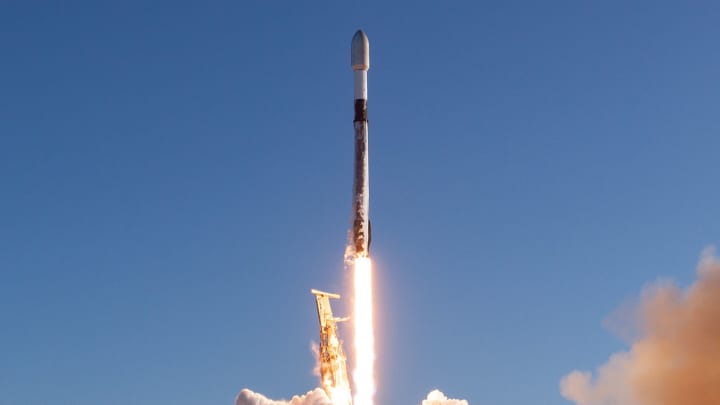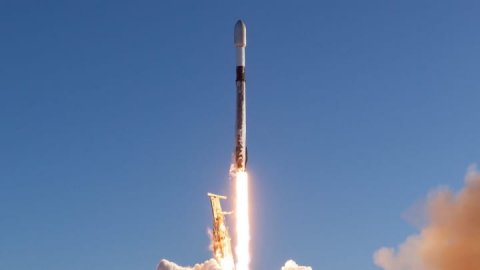
PARIS – A Lazard investment banker sounded the alarm about the dominance of SpaceX in the rocket launch market, as the industry waits for U.S. competitors to begin flying new vehicles.
"I think it's a huge concern," Vikram Nidamaluri, managing director of telecom, media, and entertainment at Lazard, said during a panel at the World Satellite Business Week conference on Monday.
"Having such a dominant launch provider is probably not healthy just in general for the commercial prospects of the industry," Nidamaluri added. "No one wants a monopoly choking out one point of the value chain. There are obviously other players that are ramping up capacity but I think the timeline hasn't moved forward rapidly enough."
Nidamaluri echoed concerns about a rocket launch monopoly raised by others in the space industry this year. Rocket launches are a potential bottleneck in the process of flying valuable satellites, spacecraft, and astronauts in orbit. Several other U.S. companies are working , but delays mean .
.
A few days ago, SpaceX launched its 63rd mission of 2023 – and the company has already topped last year's record of 61 missions while flying at a blistering average of a launch every four days. Beyond the U.S. rocket market, SpaceX leads the world in both launches and spacecraft mass delivered to orbit each quarter. The company alone keeps the U.S. ahead of China, the next closest geopolitical competitor, in satellite and astronaut launches.
SpaceX Vice President Tom Ochinero, during a separate panel at World Satellite Business Week on Monday, responded to Nidamaluri's concern by framing it around whether the rocket-builder would fly satellites of competitors to its Starlink satellite internet service.
"We've proven that, yeah, we will," Ochinero said. "We're a launch company first, we're here to provide launches."
While Starlink is clearly SpaceX's "big internal customer," Ochinero noted that the company has moved launches for its own satellites "out of the way as needed sometimes to provide launches for competitors and customers" alike. to launch 14 missions for Canadian operator to deliver its Lightspeed internet satellites to orbit, and has previously launched satellites for other Starlink communications competitors such as OneWeb, , and .
"I'm not super worried about this – we're here to launch," Ochinero said
Tory Bruno, CEO of United Launch Alliance, during the same panel pushed back on the idea that SpaceX has full control of the launch market. ULA, historically the next largest U.S. rocket competitor, has completed only two launches so far in 2023, and is working toward the inaugural launch of its next-generation Vulcan rocket in the coming months.
"I appreciate the sentiment that [SpaceX] will be a benevolent monopoly, I don't think you're a monopoly and I don't think it's our plan for you to become one," Bruno said.




